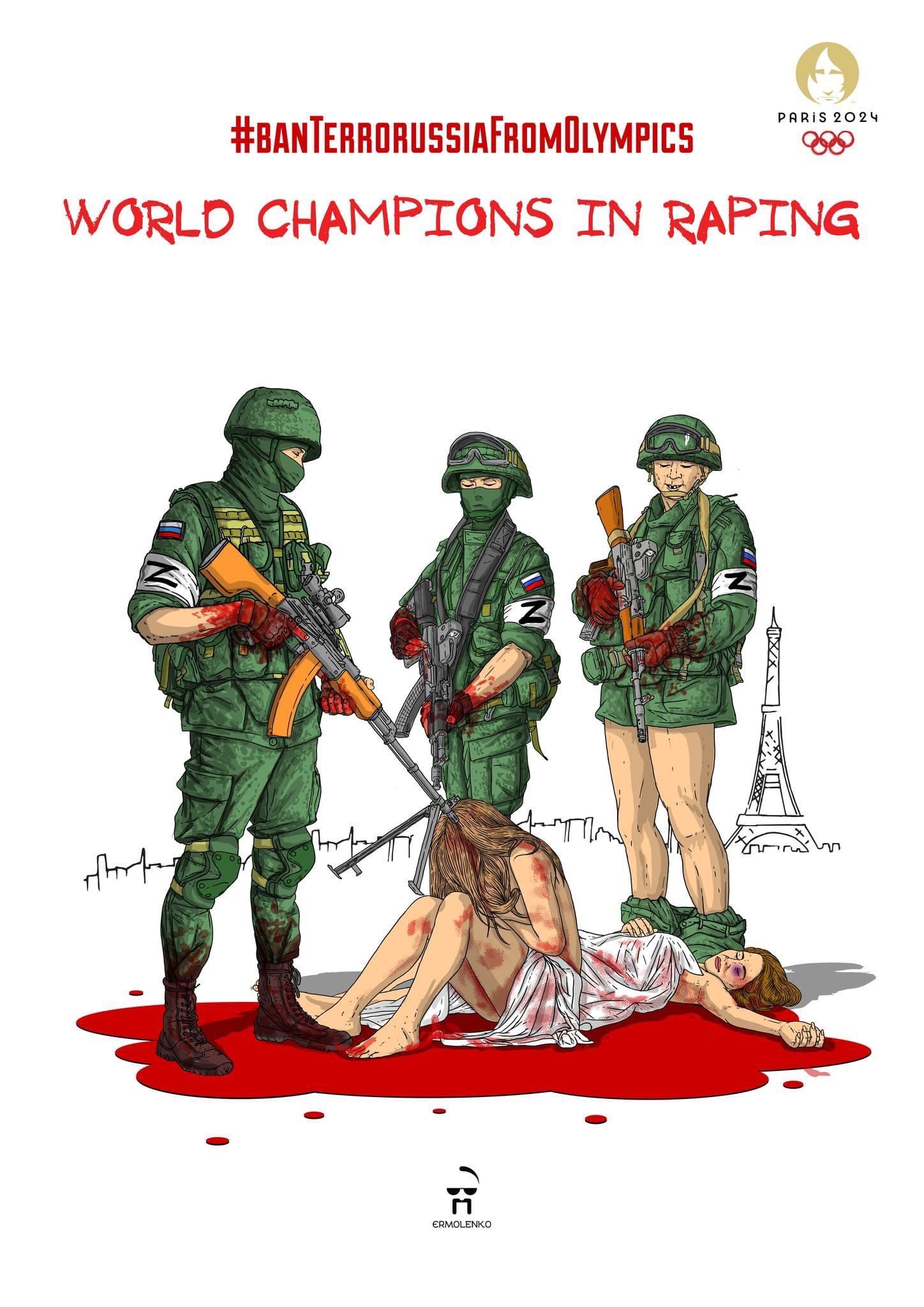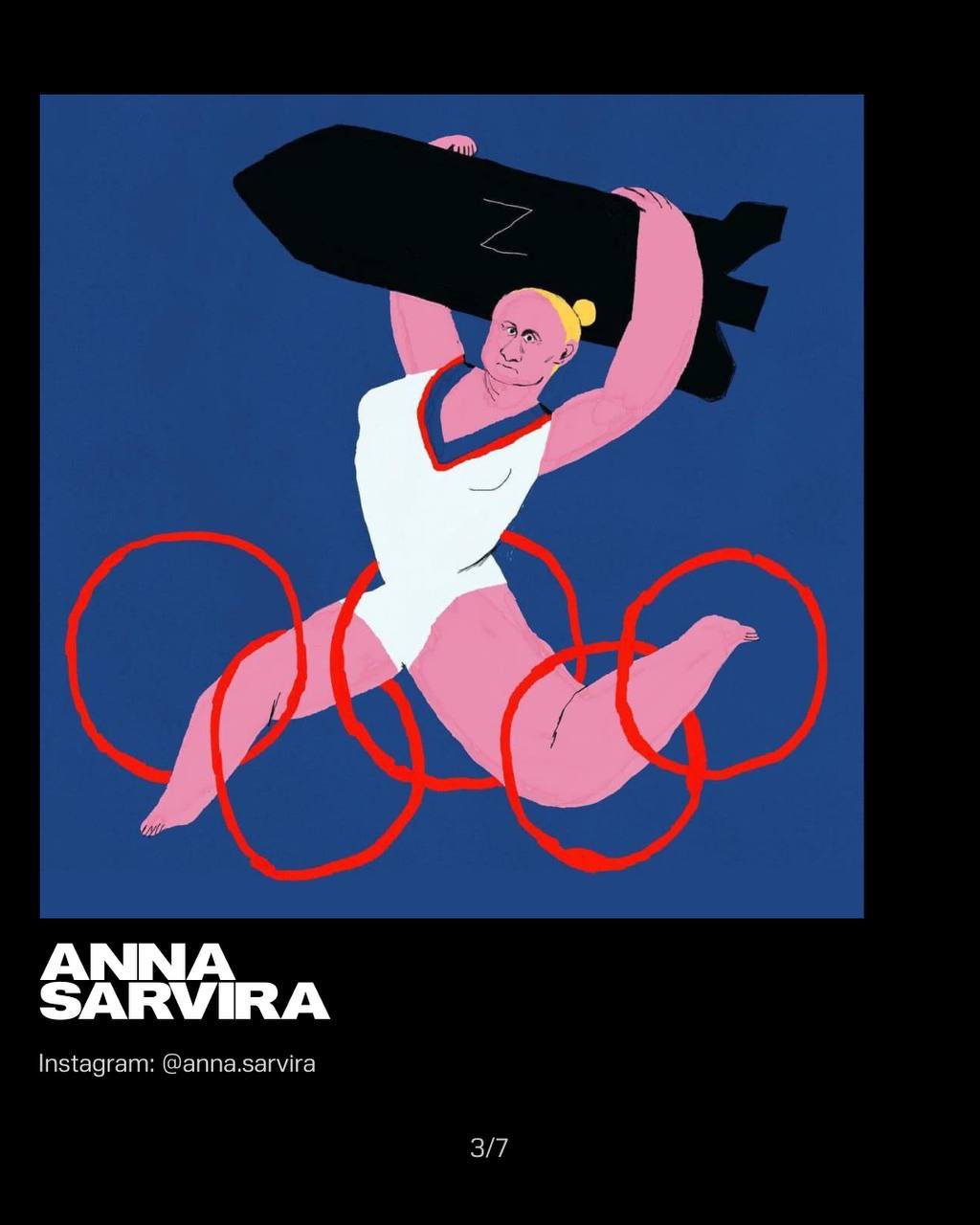Has appeasement won the Olympics?
A group of 40 countries initially threatened to boycott the Paris 2024 Olympics if Russian and Belarusian athletes were to participate. But the steam appears to have run out.


The international community appears to be easing off on its threats to the International Olympic Committee (IOC). Since the beginning of the Russian invasion of Ukraine, dozens of countries around the world have argued that Russian athletes should not be allowed to participate in the Olympic Games. Similarly, they stated that Belarusian sportsmen and women should not compete, given their country’s involvement in the war.
Last year, a coalition of roughly 40 countries announced that they were against the “inclusion of Russian and Belarusian athletes at the [2024] Olympics.” The group even toyed with the possibility of boycotting the competition.
Such a decision would be catastrophic for the IOC. Television sponsors would opt not to show the games, meaning the Olympics would lose millions in revenue from television rights. Broadcasting agreements and deals could be terminated, which would result in further loss of revenue. Finally, with few countries competing, viewership would surely decrease around the world. If this were to occur, the 2024 Olympic Games would be seen as a failure.
The countries involved in the coalition are significant, spanning across four different continents.
From Asian states such as Japan and South Korea and North American powerhouses such as Canada and the United States to Oceania’s Australia and New Zealand and the might of the European Union, the lack of participation from these countries would have sent a clear message to the international community about Russia’s ongoing invasion.
They have pushed to expel the Russians and Belarusians from this year’s competition.
Banning Russian and Belarusian athletes from the Olympic Games would inform aggressive actors that countries invading and killing their neighbors should not be able to participate in global events and organizations. The message would also state that aggressive actors should be punished for their behavior.
Planning for this potential boycott, the IOC took measures to appeal to this coalition.
- The IOC stated that Russian and Belarusian athletes would be forced to compete as neutrals, meaning they would not be allowed to wave the Russian and Belarusian flags.
- The IOC suspended the Russian Olympic Committee for breaching the Olympic Charter due to the Russian Federation’s attempt to forcefully annex Ukrainian territory. As a result, the Russian Olympic Committee would no longer receive funding from the Olympic Movement.
- Most recently, the IOC announced that Russian and Belarusian athletes would be excluded from the opening ceremony during this summer’s event. The Paralympics took a similar stance for this summer.
These decisions, however, are the bare minimum.
In addition, it is publicly known that several of this year’s participants from Russia are also servicemen and women. These individuals have frequently been pictured wearing Russian military uniforms, and some of them have received awards for their military service while fighting in Ukraine.
Furthermore, Russian and Belarusian participation in the Olympic Games will be used as a propaganda point. It would allow the Russians and Belarusians to portray the invasion of Ukraine as normal. It would also be an attempt to push the international community into accepting the current status of the war.
Now, with the 2024 Olympic Games being just two months away, it appears that the IOC is disinterested in taking any other stances against Russian and Belarusian participation. Government officials in France have also previously stated that they would consider denying visas to Russian and Belarusian athletes to prevent them from participating in the Olympic Games. But little has been done to follow up on these statements since the initial threats were made last year.
Time is running out to prevent Russia and Belarus from participating in this summer’s competition. With the IOC unwilling to stop these athletes from participating in the 2024 Olympic Games, the international community must now decide how to proceed.
Will the coalition of 40 countries announce their boycott of the 2024 Games, similar to what occurred during the 1980 boycott? Or has appeasement won Russia and Belarus their place in this summer’s competition? Time will tell.
The foreign ministers of Estonia, Latvia, and Lithuania released a joint statement in July 2023 expressing “deep concern” over the International Olympic Committee’s recommendation to allow Russian and Belarusian athletes to compete under a “neutral” flag at the 2024 Paris Olympics.
In April, French President Emmanuel Macron proposed a ceasefire in Ukraine, Israel, and Sudan during the Paris Olympics, expressing hope for China’s support in this matter. Ukrainian President Volodymyr Zelenskyy rejected this suggestion, stating that no conflict with Russia can be frozen.
The Summer Olympic Games will occur in Paris from 26 July to 11 August. The Paralympic Games are scheduled for 28 August to 8 September.







Related:
- Reuters: Macron to ask for help from Beijing in establishing truce between Ukraine and Russia during Olympics 2024
- The Olympic Committee has a genocidal dictator problem – opinion
- No flags, no teams: Russians and Belarusians to join 2024 Olympic Games as neutral athletes
- Activists demand Russia’s exclusion from the 2024 Olympics
- Ukraine’s Olympic Committee: Over 400 Ukrainian athletes killed due to Russia’s aggression
- Parisian Mayor: ‘Russian, Belarusian athletes will not be welcomed in Paris’



